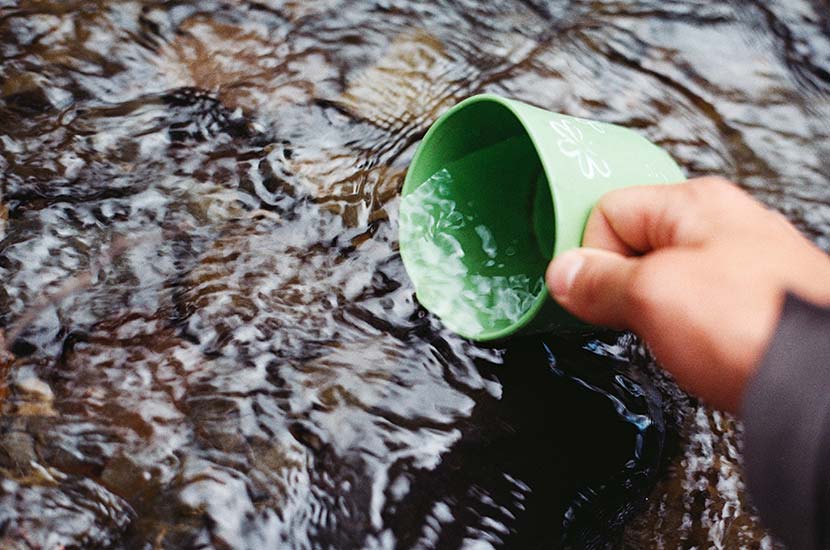Resources
Thirsty?

I ran into a bit of a conundrum last week…. I’m part of a group of Christian business leaders who meet once a month, working to make each other better. Recently, we’ve been going through a series of marketing topics. One of the questions we were challenged with was to define our “ideal client”. Nothing revolutionary about this concept. Every business should seek out its ideal client because it’s best for both the business and the client; client gets what they are seeking and business gets a good client. Imagine a homeowner with old wiring in their home. He would want to find an electrician that knows the codes of the area and who specializes in rewiring older homes. They meet, it’s a win-win. Well, in my business of advising and coaching, I’ve found it a little challenging to define my ideal client; I find myself helping a wide variety of people (at least it appears that way on the surface). I spent a few days thinking about my ideal client but felt that I was not quite zeroing in on a good description. It’s one of those things… I can tell when I meet one, but to come up with a generic description proved harder.
Are you fruitful?
One morning, my regular reading plan took me to the parable of the sower in Mark. As I was reflecting, I was struck by the thought that this parable might help me define my ideal client. I was pondering the seed falling on the different soils: Some on hard surface, some with rocks hidden underneath, some in an area full of weeds, but finally some in nice fertile soil which produced 30, 60 or 100 times the fruit. It didn’t take me long to say, “my ideal client would definitely be someone of fertile soil!” Well, why not? I thought. After all, I engaged in this venture to inspire and guide people to live more fruitful, fulfilling, adventurous lives, right? Wouldn’t it be best to work with the most spiritually fruitful “soil”? But then it occurred to me; who or what determines what soil someone is? Are we born a certain soil? Is it the result of circumstances and experiences? Does God make us one or the other? Is it the result of intense biblical study? Is it defined by our personalities? Is it evidenced by going to church regularly? I wanted to know because I ultimately would need to find these people somehow. I reflected on my experiences as a financial advisor for the past 15 years; I’ve seen a lot, believe me! One of the things I’ve noticed is that I can give the same wisdom and advice to two people in very similar situations. One will follow it, the other won’t. One benefits from the advice, the other doesn’t. Why does one follow and the other not? Seems like the same issue as the soils; why does the seed take root in one case but not the next when everything on the surface looks the same? The parable’s main point is that it’s what is lying under the surface that matters. The soil represents our hearts and the seed is the living word of God. If there is hardness on the surface, rocks hidden underneath, or little room due to all sorts of other stuff growing there too, the seed will not be able to take deep root and will not produce fruit. I wondered; how can you spot what is under the surface, in someone’s heart? Coming back to the task of describing my ideal client, I realized it would not be simply a matter of surface level demographics (age, gender, income level, religion, education, etc.), though I was a little puzzled…. “Shouldn’t all Christians be seeking the adventure God made them for?” Then I remembered the countless number who go to church each week, even read the Bible regularly, but still don’t seem to produce fruit. In other words, the church could well be full of people of rocky or thorny soils. So, how to discern what goes on under the surface? Obviously, each of us has the freedom to make our own choices and each experiences the resulting consequences. Like the two financial prospects in the same situation, each had the choice whether or not to follow the financial advice. I’ve experienced this as a coach as well. Countless times I’ve met people with super ideas of what they wanted to do with their lives for God. As I spoke to them, the passion built and built. I was excited for them!! I encouraged them! I could see the path they could take, the possibilities, and offered to help them get there….. Still waiting! These people apparently are content to stay put.
Do you aspire to something greater?
I’m reminded of the story Jesus told of the man at the pool. He’d been waiting 38 years to get into the healing waters. He wanted to be healed… of course! But had it become all talk? Had he become content in his discontent, fulfilling his duty? Jesus cuts to the chase when he asks him, “Do you want to get well?” In other words, do you really want this? Do you really believe me? Are you willing to let go and trust me with your future? Do you aspire to live a greater life, free of this handicap and sin? Then, the man pours out his excuses; the rationale for why he could not be healed. While it’s not explicit in the text, the man must say “yes” because Jesus instantly heals him. Later Jesus warns him to stop sinning and the man goes out, testifying about what Jesus did for him, bearing greater fruit. Just like this man had to decide to trust Jesus, we seem to have the choice to decide what soil we are – how deeply we will let him penetrate into our hearts. It’s up to us! Jesus asks us, “Are you willing to give up the things you have been clinging to in exchange for something greater… as scary as this may seem? Do you believe me? Will you trust me to deal with all of the hardness, all of the hidden stones, all of the weeds in your life?” I concluded that people of fertile soil have an aspiring heart with a willingness to reach for greater things even if they have to contend with the discomfort that comes with steps of faith. This was helpful, but how could I spot this in someone? Simply a matter of asking them if they are willing? And, willing to do what? Seemed a little mushy to me, not concrete enough. James helped me out: “What good is it, dear brothers and sisters, if you say you have faith but don’t show it by your actions? Can that kind of faith save anyone?” James 2-14 James says that the evidence of saving faith is action, and action produces fruit. Realizing this, I began to feel I was getting closer to the definition of my ideal client: Someone who is fruitful already (even just a little), aspires to greater fruitfulness and is willing, by faith, to take action to serve others, in spite of the discomfort they will face to do it. After considering this for a while, I felt that my description was close but not quite complete. Something was missing. What motivates someone be willing to take on something that could cause discomfort or disruption? I have met many a person who finds their place to serve and has been fruitful, but seems to settle into the routine. Much like a blueberry bush planted near my former church. It was growing, and it produced a few berries each year, but it was not in the right exposure to be more fruitful. It would have to be moved to become more fruitful and moving is traumatic. So true for people in this situation, fruitful, yes! Willing to move to become more fruitful? It would seem not. These people were lacking something, but what? What would move these people to endure some discomfort to serve more? They must get something back in exchange that is deeply satisfying, I thought to myself. Interestingly, Psalm 63 was also part of my reading plan that day. King David writes:
O God, you are my God; I earnestly search for you. My soul thirsts for you; my whole body longs for you in this parched and weary land where there is no water. Psalm 63.1
This is a cry for intimacy. David, a man of adventure for God, finds himself in, not just a physical desert but a spiritual one. His soul is dry and dying. He wants to be close to God in the worst way. He is thirsty.
Are you thirsty?
If there is one thing I have learned as a gardener it’s that without water, no fruit is produced. Even in the desert, there is no fruit until the spring rains come. David is clear that his thirst-quenching source was God himself; refreshment provided in times of intimacy. He demonstrates that a man of adventure will find himself in a desert from time to time. This happened in different ways throughout David’s life. Each time David responds by thirsting for God, for deep intimacy with him, where his soul is quenched and, as a result, tremendous fruit is produced. David was not only willing, he was thirsty for intimacy with God. I have learned personally that intimacy with God only comes when we are willing to stretch ourselves, by faith, into lands we have not traveled through before. Pursuing the adventure God made us for leads us to seek intimacy, intimacy quenches our thirst and we produce fruit. David was willing to do whatever it took to find this intimacy with God. I realized an ideal client for me would not only be willing, but would be thirsty for the fulfilling intimacy with God. So much so, that they would attempt to do things that would make them uncomfortable, that seemed over their head, that required faith beyond what they have had. They would be willing to believe in the promises of God to a greater and greater extent and act on it. This realization seems to make the description of my ideal client complete. Here it is:
- Fruitful – Even just a little
- Aspires – by faith, to take greater actions to serve others, producing greater fruit, even though it makes them uncomfortable and seems over their head.
- Thirsty – above all else, for the unmatched fulfillment that comes from deeper and deeper intimacy with God.
Do you fit this description? Let’s connect! Engage in the Mission Curve™ Process which is designed specifically for people like you; to lead you to greater fruitfulness. Help me do what God has called me to do by letting me help you do what he is calling you to do. Start the process. Go to www.bobblackcoaching.com to schedule a free consultation. It will change your life.
